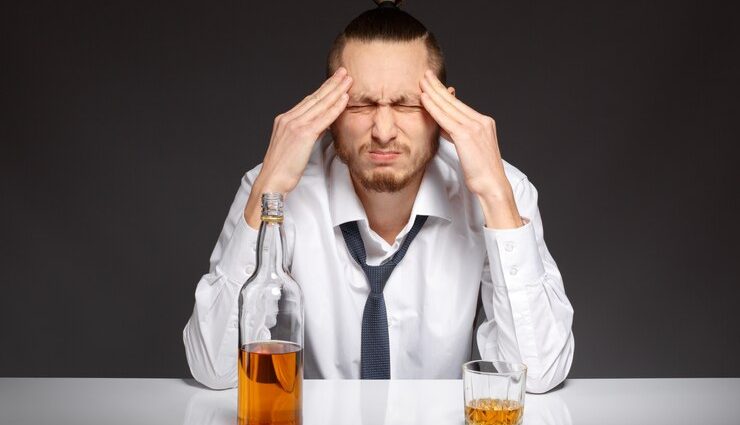The effects of alcohol are very negative, both on the brain and on behavior. According to a study published by the American researcher J. Roizen, alcohol is present in most violent crimes. Based on data collected in the United States, it is known that 86% of murderers act under the influence of alcohol. This also occurs in 37% of robbers, 60% of sexual offenders, and 57% of cases of domestic violence.
The numbers speak for themselves. Alcohol is one of the most addictive substances. It is also one of the psychoactive substances that most intensely change people’s behavior. There is still no complete certainty about the factors involved in the alcohol-violence dyad, but it is clear that they are closely related.
Effects of alcohol on the brain
Alcohol disrupts the normal functioning of the brain. According to the disinhibition hypothesis, alcohol consumption weakens the functioning of the brain mechanisms responsible for restricting impulsive behavior. That is why an alcoholic person lets his or her impulses flow, without considering the consequences, and with the utmost naturalness. Alcohol also causes poor information processing in the brain. As a result, people under the influence of alcohol may misinterpret certain social cues. For example, normal behaviors such as a pat on the back may be seen as a threatening gesture. There is also no proper assessment of the risks of the behavior. People who drink alcohol do not think about what may happen after a certain act.
However, some studies suggest an important nuance. In one experiment, the response of a group of abstinent individuals to aggression was compared with that of others who had been drinking. The differences were not very large. This suggests that consumption of the substance alone is not what triggers aggressive impulses. The difference would be that while those who are sober define a limit, those who drink alcohol do not.
The effects of alcohol and cultural influence
Some facts have caught the attention of researchers. Some people are regular consumers of alcoholic beverages and do not report violent behavior under the influence of alcohol .
From this observation arose a new hypothesis in which the violence generated by alcohol consumption does not depend exclusively on changes in the brain, but on cultural influence. There are environments in which it is expected that those who drink will develop violent behavior. Those who are part of these circles respond to this expectation.
This hypothesis was confirmed in further experiments in which several participants were given simulated alcoholic drinks (they did not contain alcohol, but tasted like liquor). They became more violent, even though there was no biochemical reason for their behavior to change.
Other aspects related to alcoholism
- Everything seems to indicate that there is a strong association between machismo and alcohol. Those who have a structure of thought that involves the authoritarian values of macho cultures adopt certain patterns of conduct that include alcohol and the learned behaviors that arise from its consumption.
- Studies have concluded that violent behavior is present before the consumption of alcoholic beverages. What this substance does is facilitate the expression of these destructive impulses.
- Added to this is a certain expectation that people will, in one way or another, exonerate the aggressor for the acts he commits. In that sense, alcohol is an excuse for not assuming responsibility for the harm inflicted on others .
Effects of alcohol: final thoughts
According to Lopez, JL, & Rosovsky, H. (2014) alcohol not only affect your brain structure and behavior but also the quality of life of the people around you. This, together with cultural patterns, can cause some people to develop a permanent disorder that is difficult to treat if they do not seek professional help. Alcohol is one of the substances that is most difficult to get rid of. In cases such as those we have described, we recommend asking for help and undergoing psychological and medical treatment.
